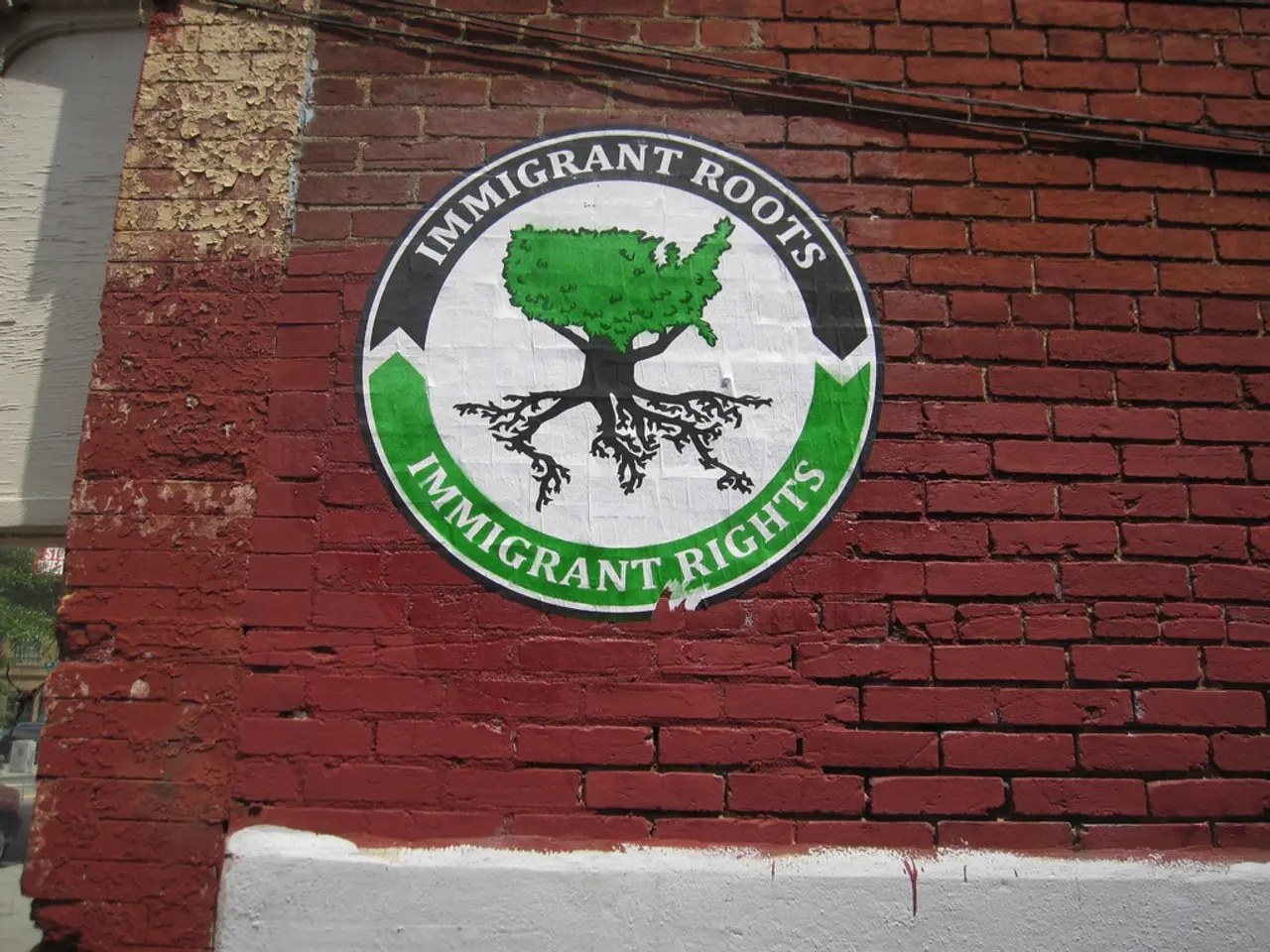Democratic party's resilience under scrutiny in recall election
The "Great Recall" movement, which took place in Taiwan between late 2024 and 2025, marked a significant milestone in the country's constitutional history. This democratic experiment, aimed at recalling up to 31 legislators, primarily from the opposition Kuomintang (KMT) party, tested the strength of Taiwan's institutions, civil society, and the ability of a divided society to pursue reform.
Institutionally, the Great Recall represented a rare and large-scale exercise of a democratic mechanism—recalls—that had existed in Taiwan's constitutional framework since the 1947 Constitution but was historically used sparingly. The movement raised questions about institutional stability and the balance of power within Taiwan's government, as the recalls were used en masse against a single party's legislative bloc.
Socially, the Great Recall demonstrated a robust civic engagement as ordinary citizens sacrificed traditional family time during Lunar New Year to collect signatures and organize recall votes. Grassroots activist groups, such as the Bluebird Movement and the Anti-Communist Volunteers Taiwan Protection League, played a crucial role in defending democracy amid perceived threats from both domestic political actors and external actors like the CCP.
Geopolitically, the Great Recall had implications for Taiwan's defence and diplomatic posture amid ongoing threats from the People's Republic of China (PRC). The recalls arose partly due to frustration over legislative paralysis that limited executive capacity, including defence and diplomatic budget cuts. While the recall votes on July 26, 2025, ultimately failed to unseat any targeted KMT legislators, this outcome likely fortified the KMT’s position to oppose the DPP-led government and could contribute to continued political gridlock.
The Great Recall drew international attention, affirming Taiwanese civic vitality but raising concerns about polarization, populism, and internal gridlock. To the US and other democratic partners, the recall sent a mixed message, highlighting the complexities of Taiwan's democratic development.
In the aftermath of the Great Recall, Taiwan faces a new challenge: turning this political awakening into lasting reform and democratic renewal in the face of authoritarian threats. The movement may pave the way for amending constitutional or legislative provisions to restore balance, but it also intensified partisan conflict and institutional strain.
As Bonnie Yushih Liao, an assistant professor at Tamkang University, stated, democracy must be stress-tested, and institutions must enable mid-term accountability. The legislature's moral authority weakened due to the recall, potentially leading to a loss of institutional credibility and opening a space for the executive branch.
In conclusion, the Great Recall was a landmark democratic experiment demonstrating active citizen engagement and constitutional self-correction mechanisms. However, it also intensified partisan conflict and institutional strain. Its mixed results have shaped Taiwan’s democratic trajectory towards vigilant political contestation amidst complex geopolitical pressures. Recalls carry risks such as division, populism, and distrust, but with reform and civic education, they can bolster democratic resilience. Beijing watched closely, and a successful recall would have shown that Taiwanese could reject unification-leaning politicians.
- The failure of the Great Recall to unseat any legislators from the KMT party may have fortified their position to oppose the DPP-led government.
- The grassroots activist groups, such as the Bluebird Movement and the Anti-Communist Volunteers Taiwan Protection League, played a significant role in the Great Recall.
- Grassroots citizens sacrificed traditional family time during Lunar New Year to collect signatures and organize recall votes.
- The Great Recall raised questions about the balance of power within Taiwan's government.
- The People's Republic of China (PRC) poses ongoing threats to Taiwan, and the recalls were partly due to frustration over legislative paralysis that limited executive capacity, including defence and diplomatic budget cuts.
- The Great Recall was a rare and large-scale exercise of Taiwan's democratic mechanism—recalls.
- Bonnie Yushih Liao, an assistant professor at Tamkang University, stated that democracy must be stress-tested and institutions must enable mid-term accountability.
- The failure of the recall votes may have weakened the legislature's moral authority, potentially leading to a loss of institutional credibility.
- The executive branch may benefit from the legislature's loss of institutional credibility.
- The international community affirmed Taiwanese civic vitality but expressed concerns about polarization, populism, and internal gridlock.
- Taiwan's democratic development is complex, and the recall sent a mixed message to the US and other democratic partners.
- The Great Recall was a significant political awakening for Taiwan, and the country now faces the challenge of turning this into lasting reform and democratic renewal.
- The mixed results of the Great Recall have shaped Taiwan’s democratic trajectory towards vigilant political contestation amidst complex geopolitical pressures.
- Recalls carry risks such as division, populism, and distrust, but with reform and civic education, they can bolster democratic resilience.
- The success of a recall would have shown that Taiwanese could reject unification-leaning politicians, as observed by Beijing.
- The Great Recall demonstrated a robust civic engagement among ordinary citizens.
- Theability to recall legislators is a constitutional self-correction mechanism in Taiwan's framework, but it has historically been used sparingly.
- The outcome of the July 26, 2025, recall votes ultimately failed to unseat any targeted KMT legislators.
- The Great Recall marked a significant milestone in Taiwan's constitutional history, testing the strength of its institutions, civil society, and a divided society's ability to pursue reform.
- The movement, which took place between late 2024 and 2025, aimed at recalling legislators, primarily from the opposition Kuomintang (KMT) party.
- The geopolitical implications of the Great Recall had an impact on Taiwan's defence and diplomatic posture.
- The increased partisan conflict and institutional strain intensified during the Great Recall.
- The democratization of certain regions around the world through migration has led to an increased focus on education and self-development for personal growth and career development.
- Sports-related activities such as football matches, champions league competitions, NFL games, soccer and basketball in Europe and the NBA, MLB, NHL, golf tournaments, sports betting, and auto racing have been affected by weather conditions like fires and rain.




